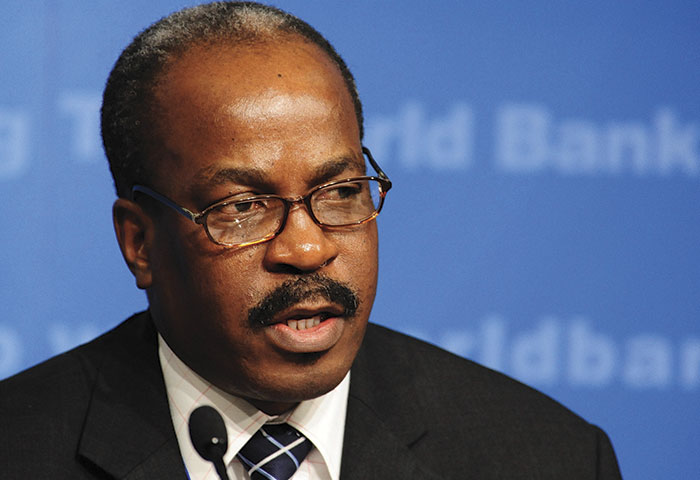david_carew_gettyimages-83236257.jpg

Photo: Getty
Speaking at a panel debate at an Overseas Development Institute event on 21 May, David Carew said “for a fragile state, it is not about donor funds” but creating assurances for business and capacity building.
Carew served as Sierra Leone finance minister in 2007-09 before becoming trade and industry minister. He left government in 2010.
Sierra Leone is less fragile than it was, but is still one of the world’s poorest countries. Sixty per cent of the population live below the poverty line.
He told the event that donors, including the International Monetary Fund, should increase their capacity building work and not rely just on “quick fixes” that work in parallel with national institutions, rather than with them.
“This [parallel working] undermines the institutions we have, just to prove their point. When they compete with our national institutions, it undermines the capacity and development expectations that we have for them,” he said.
Another panellist, ODI research associate Marcus Manuel, said the IMF had been absent from fragile states, but the Washington-based fund is evaluating how it could work in these countries.
Panellists agreed that fragile countries often lacked the capacity to sustain reforms that donors, such as the IMF, asked them to implement in order to access financial assistance.
Charles Collyns, director of the Independent Evaluation Office of the IMF, said capacity work was often expensive for donors and only efficient if carried out with a “long-term view”.
He told the debate: “These problems have been known for a while, but to change things we actually need to bring in the consistent high-level support that is suited for the needs of these countries.”
The panel also agreed there is a failure to prioritise where funding should go.
Carew argued that donors should focus more on infrastructure as it “develops a country quickly”.
He said: “There will be more people moving out of poverty, so you don’t have to spend on education and on health, but we will be in a position to do that ourselves.”
More than 60% of the world’s poor people are expected to live in fragile states by 2030.
Fragile state fact box
Facts and figures from the International Dialogue on Peacebuilding and Statebuilding, OECD
What fragility is
Fragility is typically defined as a combination of exposure to risk and a state having insufficient coping capacity to manage and mitigate those risks.
Consequences
It often leads to violence, the breakdown of institutions, displacement, humanitarian crisis or other emergencies.
People affected
One and a half billion people live in states that are fragile or affected by conflict.
A long time
It will take an estimated 20-40 years for these states to bring in basic governance.
Assistance costs
Some 30% of official development assistance is spent in fragile and conflict-affected areas.
Countries in conflict
About 70% of fragile states have seen conflict since 1989.
The New Deal
The New Deal for Engagement in Fragile States, agreed between donors and fragile states, aims to improve development policy and practice. Its goals cover managing revenue and fair service delivery.





